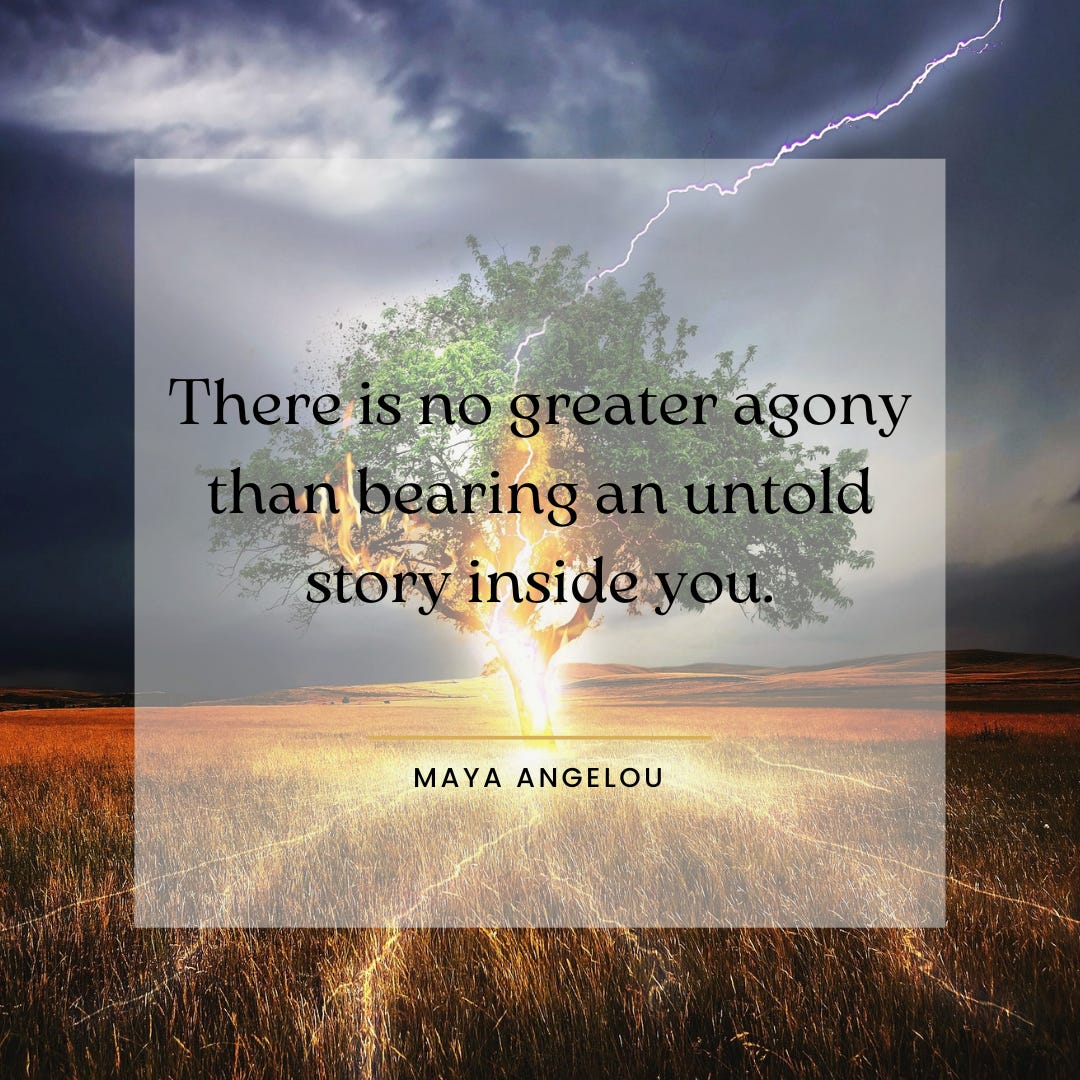Writing a midlife reinvention - beginning, middle, end - begin again
How some 'shocking' feedback inspired me to restart my writing journey. And, some newsletter news.
My goal is to write faster and more freely—to hear my voice zing across the page without stopping to judge every word. I want to increase productivity—well, of course, I do. We’ve met, right? But more importantly, I want to let go of perfectionism—to stop self-editing before I strike the first key.
Yesterday, I joined a workshop with one of my favorite writing coaches. Joni B. Cole is sharp and funny, and her feedback is always on point.
Joni held the first in-person writing workshop I ever attended. I know she can help me now because of what I learned from her then.
I arrived an hour late. I’d entered White River Junction instead of Woodstock into Google Maps (hello, brain fog). Already on my back foot and feeling out of place, I tiptoed across the creaky heart pine floors in the late 18th-century home of our host. Joni mouthed a silent hello and nodded toward an empty wingback chair while six other women bent their heads over laptops and notebooks, tapping and scribbling furiously.
After the “real writers” shared their work, I introduced myself. “I’ve always wanted to write,” I said. The admission made me feel incredibly vulnerable. Maybe I shouldn’t have been there. I’d heard as much in a memoir-writing course I’d taken online years before. I told the group about the feedback I’d heard.
“There’s no arc in your story.” The facilitator typed into the live chat window (in the pre-Zoom era).
“What are the stakes?” “Where’s the conflict?” “How does the narrator change?” Added the other online class participants. My hands were still on the keyboard; I had no answers to offer the scrolling text screen. I felt shamed and discouraged.
Back then—so early in my education on craft—the feedback deflated my aspirations. I put my draft in a drawer.
My insecurities would follow me into my MFA program ten years later, where I would learn esoteric literary terms like Freytag’s Pyramid.
Stories have a beginning, middle, and end, but they’re more than a sequence of events.
The main character (our hero) must want something and face obstacles (external and internal) to get it. She is tested. There is a great battle of wills or words, or maybe a “dark night of the soul,” resulting in an epiphany that forever changes our narrator (for better or worse).
But you know about rules—they’re meant to be broken.
“Fuck the arc!” said Joni that day in Woodstock, Vermont. (author’s note: this is the climax of our story.)
Her feedback hit me like lightning strikes a tree, freeing my bottled-up potential in a single explosion
In life, you must live your story before you know how events may change you. So too, with writing. Perhaps “fuck the arc” is akin to that old saying, “God laughs when you make plans.”
In other words, Joni clarified, “We get so hung up on structure” that we risk losing our way. Remember, you are the “boss of your own story.”
I realized (the epiphany!), I’d created an impossible-to-achieve image of what a writer “should be.” If the test was to write freely, without worrying about anyone else’s expectations, then I had failed. But, I would no longer be discouraged.
This story has a beginning, a middle, and, you might argue, a happy ending—our hero writer is now hopeful! But I see it differently—to paraphrase Seneca (or Semisonic)— every end is a new beginning.
If you’ve read (or skimmed) this far, thank you. Don’t be shy about tapping that share button.
News about the newsletter
Weekly posts begin today! Like, I said I want to write faster 😉 But, more than that, I want to build community.
I’m leaning into this newsletter—partly as a writing practice but mostly because of the great feedback I’ve received.
I write about my experience with the obstacles I’ve encountered during this midlife reinvention—self-doubt, expectations, perfectionism, aging bodies, daily life, and the search for one’s purpose (I think that one’s B.S., by the way).
My hope is that you nod or laugh or cry because you’ve been there too. It is never too late to write a new chapter, but that doesn’t mean it’s easy.
Prompts for your next chapter
Drop a few lines of writing in the comments. There is only one rule. Be kind to yourself as you write and to others as they trust you with their words.
Perhaps your reinvention hasn’t reached its climax, and your epiphany is beyond the horizon. Try these writing prompts to help guide your journey.
Reflect: Immerse yourself in a moment when you felt discouraged enough to quit (or nearly quit) something you wanted to love. Write a scene about that moment. Where were you? Include every detail you remember. What or who stood in your way (was it you?).
Inspire: Flash forward. You quit (for real or hypothetically). Some time has elapsed—months or years. How do you feel now on a scale of “heartbroken” to “thank God that’s over?” Write in stream-of-consciousness (let your voice zing across the page). Don’t stop for at least five minutes. Then, keep writing until lightning strikes.
Last to Know Links
Joni’s book, Toxic Feedback: Helping Writers Survive and Thrive, is available for pre-order here or wherever you buy books. Support independent booksellers!
Work hard. Be Brave. Believe.







Definitely relatable. I think we've all been there, in situations where we just weren't sure if we belonged or "had what it takes." Even writing these comments on your writings has me second guessing if I'm saying the right things and in the right way. Every end is indeed a new beginning!
A lovely story 🌺 thanks for sharing .... So glad that the experience inspired you to just be yourself 🌻